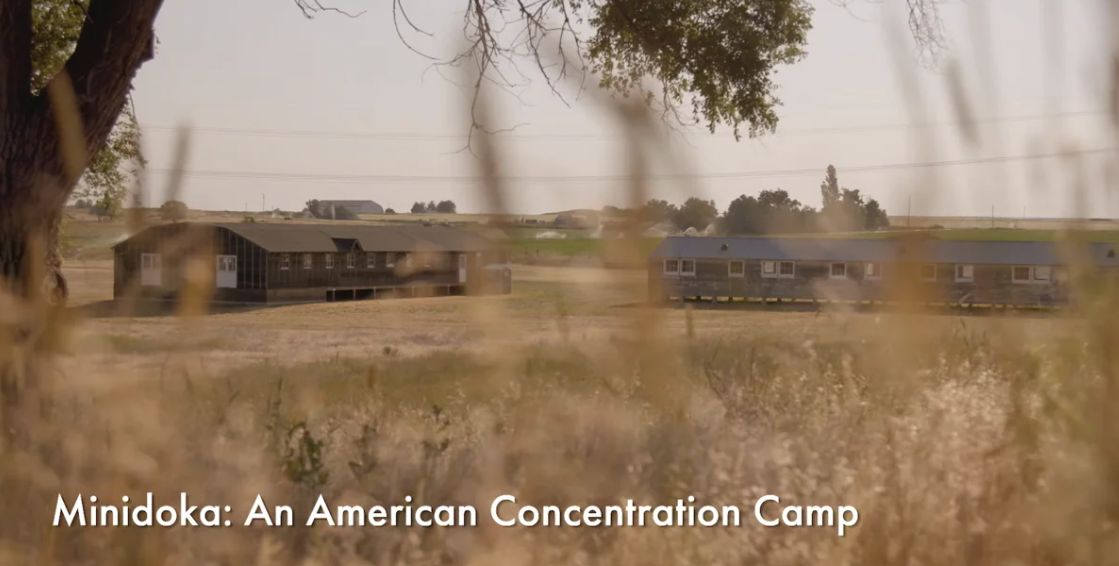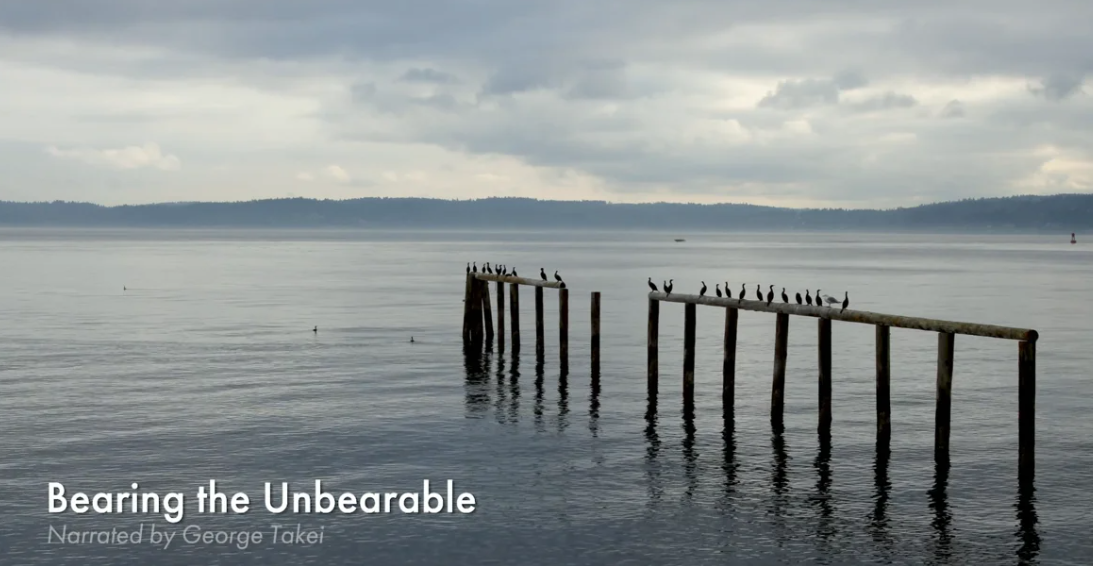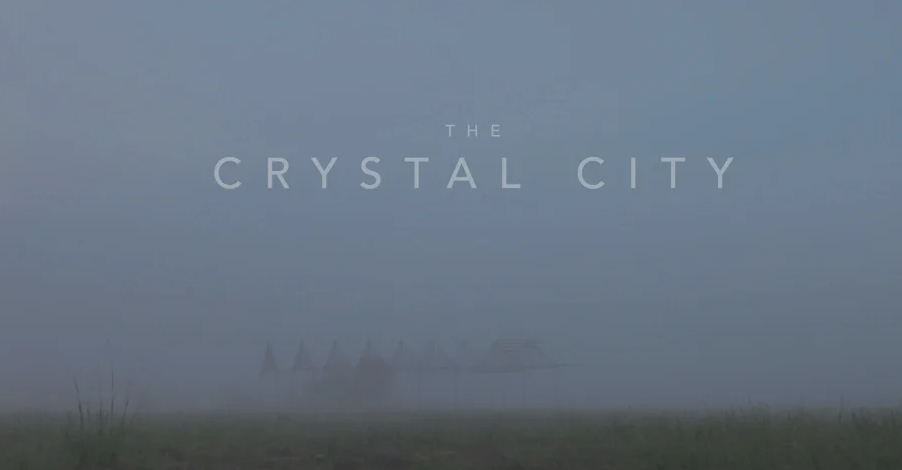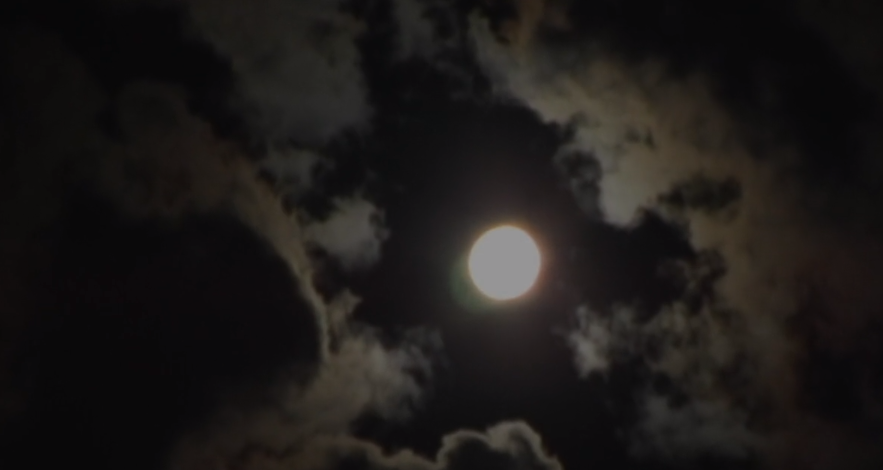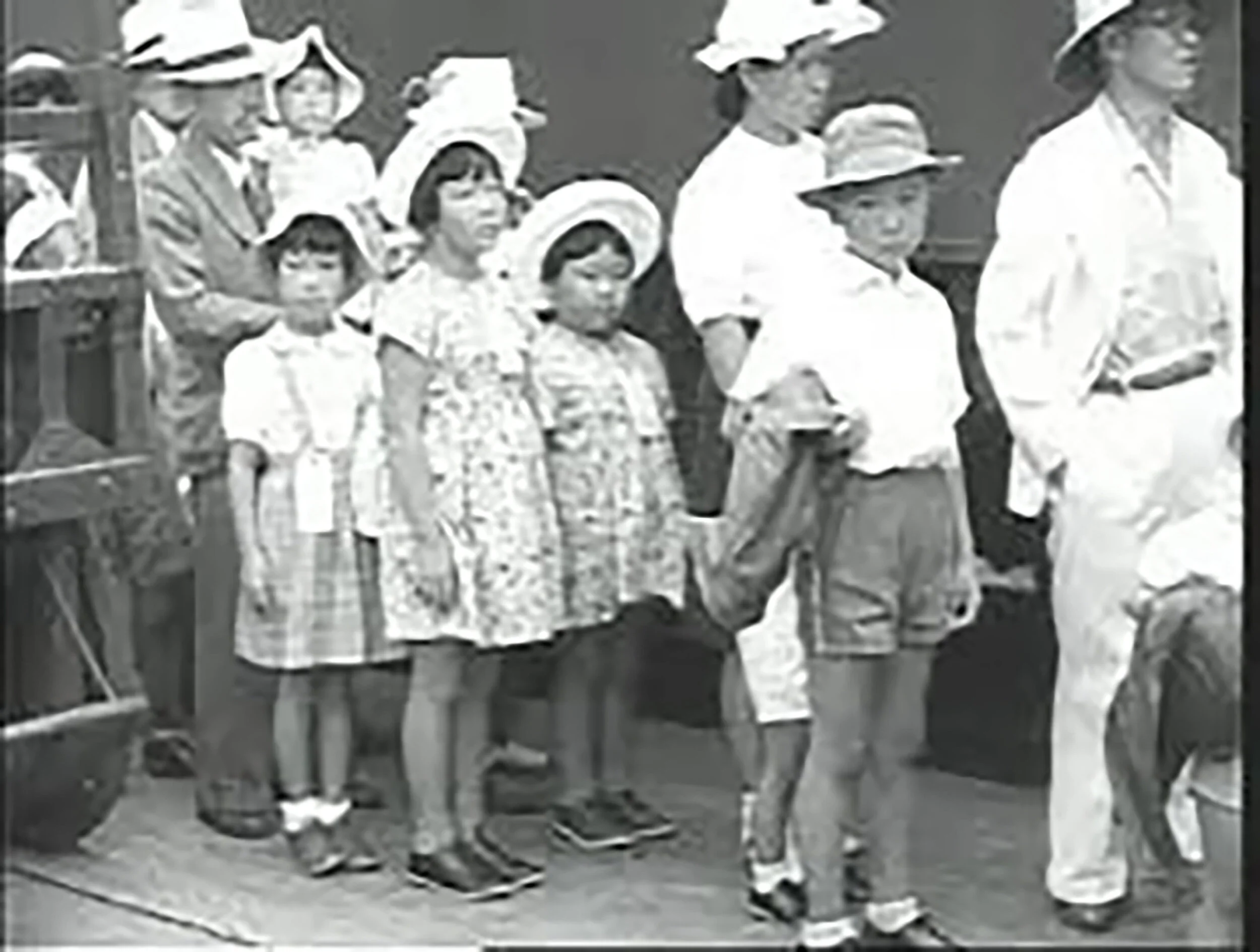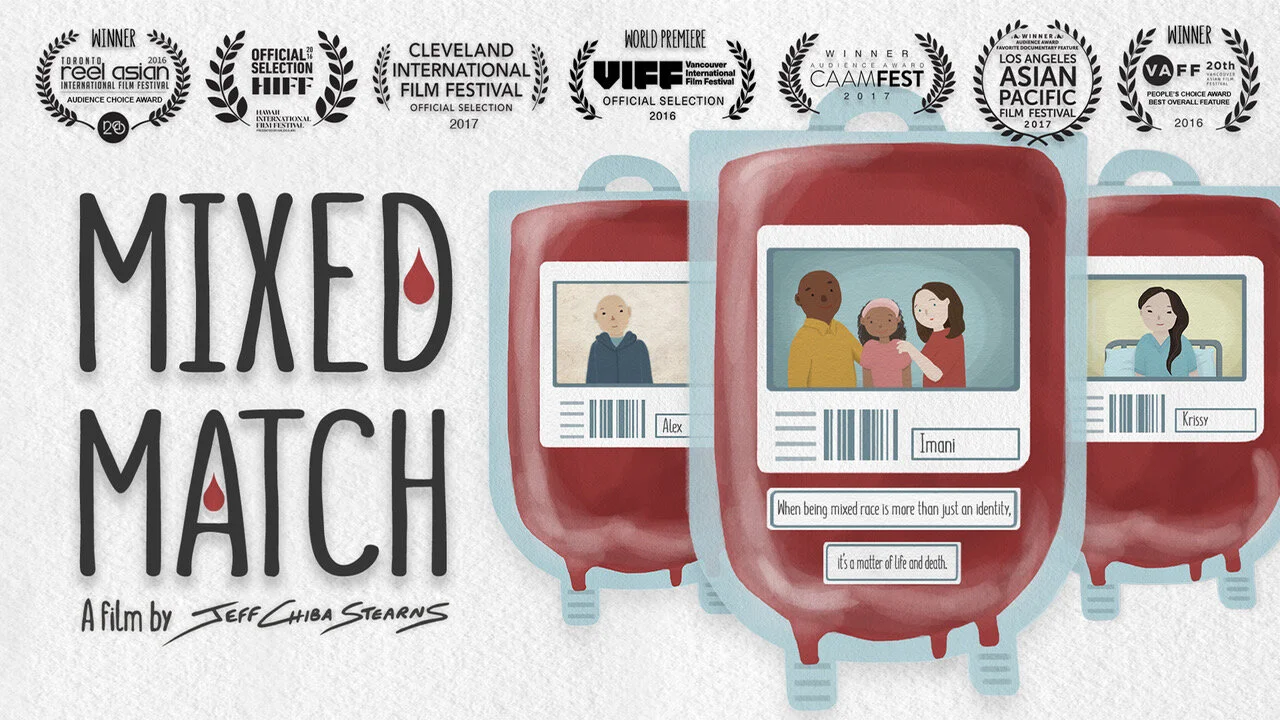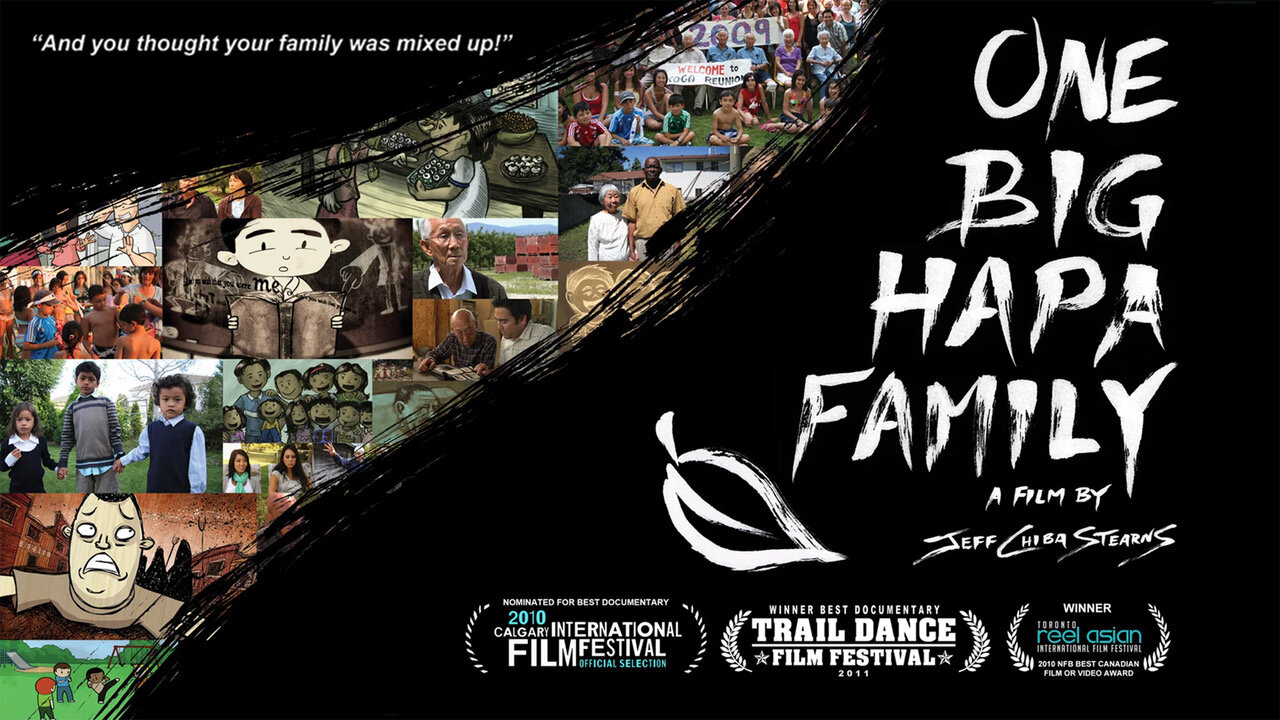
As a general rule, films will only be available to view during the week they are scheduled. we appreciate all of our filmmakers for being willing to participate in this virtual environment!
Read our film festival curator’s statement here
Week 1: Immigration and Settlement
Released on June 14, 2020
Obaachan’s Garden
Dir. Linda Ohama | 94 mins | 2003
Peeling back the layers of her grandmother's life, filmmaker Linda Ohama discovers a painful, buried past in this feature-length documentary. Asayo Murakami, 103 years old, recalls life in Japan, her arrival in Canada as a "picture bride," her determination to marry a man of her choice, the bombing of Hiroshima and the forced relocation of her family during WWII. Beautifully rendered dramatic sequences are merged with an exquisite collection of memories, feelings, images and voices. Culminating in an emotional reunion with a long-lost daughter, this film is a personal reflection of Japanese Canadian history and a testament to one woman's endurance and spirit.
Minidoka: An American Concentration Camp
Courtesy of National Park Service
Minidoka: An American Concentration Camp tells the story of Japanese Americans, most of them American citizens, who were forcibly removed from their Pacific Northwest homes during Word War II. They were held in squalid conditions in temporary detention centers, and then put on trains to a concentration camp in the desert of southern Idaho. Innocent of any crime, many of them would remain imprisoned at Minidoka for over three years. In the compelling voices of survivors of the camp, the film explores the unconstitutional suspension of the civil rights of these Americans and the long-lasting impact of the incarceration on their community. Minidoka examines what happens when a group of Americans are imprisoned solely on the basis of race, and examines the relevance of this story today.
To learn more, visit www.nps.gov/miin.
Lil Tokyo Reporter
Dir. Jeffrey Gee Chin | 30 mins | 2012
A project of the Little Tokyo Historical Society (LTHS) starring Academy Award-Winner Chris Tashima as Civil Rights Leader Sei Fujii. The film breathes life into the world of 1930’s Los Angeles and the journey of a Japanese newspaperman who must fight the corruption within his own community. The film won over 21 awards and screened with the U.S. State Department in South Korea, China, and Japan. The film inspired projects honoring Fujii’s legacy including the construction of a Memorial Lantern, a successful petition for a Posthumous Law License, and upcoming publications of a Graphic Novel and Biography. Additionally, LTHS established historic designation for the Japanese Hospital in Boyle Heights, a site that Fujii and fellow USC Law School Alumnus J. Marion Wright represented in U.S. Supreme Court in 1928 (Jordan v. Tashiro). The pair also overturned the infamous California Alien Land Law in 1952.
For More information please visit: http://www.littletokyohs.org/film-project.html
Finding Dohi
Dir. Amber McClure | 24 mins | 2019
FINDING DOHI is an intimate portrait of a woman separated by culture, language, and thousands of miles from a family she has never met. Daphne, a 3rd generation Japanese-American, holds on to letters sent to her mother long ago. The contents of the letters are a mystery, as they are written in Japanese - and she cannot read or understand the language. Thus begins her decades-long pursuit to fill in the scant details she knows about her Grandfather Dohi, who immigrated to Hawai'i from a rural Japanese village in 1891.
Documented by her daughter, their journey from Hawai‘i to Japan explores the themes of identity, language and culture loss, honoring ancestors, and reconnection, and reminds us that some family bonds cannot be broken no matter the time or distance.
Week 2: Pre-War and Forced Removal
Released on June 21, 2020
Alternative Facts: The Lies of Executive Order 9066
Dir. Jon Osaki | 66 mins | 2019
ALTERNATIVE FACTS sheds light on the people and politics that influenced the signing of the infamous Executive Order 9066, which authorized the mass incarceration of nearly 120,000 Japanese Americans. The film exposes the lies used to justify the decision and the cover-up that went all the way to the United States Supreme Court. ALTERNATIVE FACTS will also examine the parallels to the current climate of fear, targeting of immigrant communities, and similar attempts to abuse the powers of the government.
Bainbridge Island: Bearing the Unbearable
Bearing the Unbearable tells the story of the forced removal of Japanese Americans from their home on Bainbridge Island during World War II and their subsequent incarceration in Manzanar and Minidoka concentration camps, innocent of any crime and suspect only because of their ethnicity. Told in the words of Bainbridge Islanders who survived the camps, the film explores the experience of incarceration and the unconstitutional suspension of these islanders’ civil rights. The film profiles the resilience of camp survivors, and the island journalists who were a lonely voice against the incarceration. Bearing the Unbearable highlights the determination of the camp survivors to share their story as a cautionary lesson for America today.
Hollywood at War: Anti-Japanese Propaganda in WWII
During the Second World War, the United States government enlisted the help of Hollywood filmmakers to carry out their propaganda messages on the big screen. The following excerpts were gathered from the vast body of anti-Japanese propaganda newsreels, cartoons, and scripted films produced by Hollywood studios under the guidance of the Office of War Information. All of these films are believed to be within public domain. This video was compiled for educational purposes pursuant to fair use guidelines. Edited by Rob Buscher - all rights belong to original Copyright holders.
The Orange Story
Dir. Erika Street | 17 min | 2017
The Orange Story is a narrative short film that tells the story of an elderly Japanese American man who must sell all his belongings and report to a temporary detention center during WWII from where he will be forcibly removed to an undisclosed location. The film also uses archival radio, film, and photographic sources to complement this narrative, providing a strong historical context for the story.
For more information: https://theorangestory.org/index.php
The Empty Chair
Dir. Greg Chaney | 1 hr 13 min | 2015
The Empty Chair is a unique documentary about how Japanese Americans from Juneau, Alaska were sent to prison camps during WWII and how the small Alaskan community stood in quiet defiance against the immoral internment of American citizens. Japanese immigrants came to Alaska in the early 1900's and settled here to raise families. Japanese Americans from the west coast of the US including Alaska were sent to prison camps by the US government from 1942-1945 because all people of Japanese heritage were considered national security risks. John Tanaka was born and raised in Juneau. In 1942 John was going to be the Valedictorian of his high school graduating class but was scheduled to be interned before the graduation ceremony. In response, the school board voted to hold a special early graduation ceremony for him before John was sent to a relocation camp for Japanese Americans. When the official graduation ceremony was held for the class of '42 they set aside an empty chair on the platform.
Never Give Up! Minoru Yasui and the Fight for Justice
Dirs. Holly Yasui and Will Doolittle | 56 min | 2017
Never Give Up! Minoru Yasui and the Fight for Justice relates the life history of an American hero. Minoru (Min) Yasui was born in Hood River, Oregon in 1916 of immigrant parents. He was the first Japanese American attorney in Oregon and during World War II, he initiated a legal test case by deliberately violating military orders that lead to the incarceration of over 110,000 persons of Japanese ancestry in U.S. concentration camps. He spent 9 months in solitary confinement awaiting his appeal to the U.S. Supreme Court, which ruled against him. The film depicts his and his family's wartime experiences in the temporary detention centers and the Tule Lake and Minidoka concentration camps.
After the war, Min Yasui moved to Denver and continued to defend the human and civil rights not only of Japanese Americans but for Blacks, Latinos, Native Americans, religious minorities, children and youth, the aged, low income people, etc. In the 1970s and 80s, he spearheaded the redress movement to win reparations and a formal apology from the government for the injustices against Japanese Americans during World War II. He also reopened his wartime case, and it was in appeal when he died in 1986.
Viewers can rent or purchase the film for personal use at: vimeo.com/ondemand/nevergiveup
Additional Educational materials (for nonprofit organizations, schools and libraries) are available at: https://www.minoruyasuifilm.org/educational-package
Week 3: Sites of Incarceration
Released on June 28, 2020
Alien Enemy Detention Facility: Crystal City, Texas
US Immigration and Naturalization Service | 20 min | 1945
This is a propaganda film created by the Immigration and Naturalization Service to show what life was like in an “Alien Enemy Detention Facility.”
A Challenge to Democracy
WRA | 21 mins | 1944
US government propaganda film produced by the War Relocation Authority.
The Crystal City
Dir. Kenya Gillespie | 13 mins | 2018
Combining present-day interviews and archival footage, this short documentary explores the physical remains of the Crystal City Incarceration Camp and the memories of its Japanese American survivors.
Dave Tatsuno: Movies and Memories
Dir. Scott Gracheff | 57 mins | 2006
At the beginning of World War II, Dave Tatsuno and his family, along with 120,000 other men, women, and children of Japanese ancestry were forcibly relocated from their homes to ten remote and desolate imprisonment camps in the interior of the United States. Dave, with the help of a camp official, smuggled his 8mm film camera into the camp in Topaz, Utah and for three years, documented his life behind barbed wire. These home movies eventually became TOPAZ MEMORIES, the only full color film of the Japanese American internment experience shot by an internee and in 1996 the film was accepted to The Library of Congress National Film Registry. To date, it is one of only two home movies held by the Library of Congress - the other being the Zapruder film of the J.F.K. assassination. DAVE TATSUNO, MOVIES AND MEMORIES tells the amazing life story of this inspiring individual.
Hidden Legacy: Japanese Traditional Performing Arts in the WWII Internment Camps
Dir. Shirley Muramoto Wong | 57 mins | 2014
Various essays and studies concerning the camps have been published, but have focused on the political and legal aspects of the internment, while hardly mentioning cultural and recreational activities in the camps. When cultural and recreational activities have been documented, they have focused on American culture, such as baseball and swing music. This film will be the first major presentation of the existence of traditional music, dance and drama in the camps. Included are stories of artists in the fields of music, dance and drama who were interned at Tule Lake, Manzanar, Amache/Granada, Rohwer, Gila River and Topaz.
The Manzanar Fishing Club
Dir Cory Shiozaki | 74 mins | 2012
THE MANZANAR FISHING CLUB is a feature length documentary that chronicles the WWII internment of Japanese-American from a unique perspective: through the eyes of those who defied the armed guards, barbed wire and searchlights to fish for trout in the surrounding waters of the Eastern Sierra. By emphasizing the evacuees' personal stories it is the first internment film to go beyond the confinement itself, and instead highlight values - courage, responsibility and cooperation - that enable the human spirit. Interviews with noted experts provide new insights in to the social political backdrop of the internment. This is the untold story of those who refuse to knuckle under and risked it all to go fishing just like other ordinary Americans.
Manzanar Fishing Club is available for purchase on DVD at www.fearnotrout.com
When Rabbit Left the Moon
Dir. Emiko Omori | 15 min | 2016
Week 4: A Question of Loyalty
Released on July 5, 2020
442 newsreels
This video contains three newsreels telling the story of the 442nd RCT. Includes battle footage from the Italy campaign, Rescue of the Lost Battalion, and a medal ceremony.
Conscience and the Constitution
Dir. Frank Abe | 57 mins | 2000
Long before the civil rights marches of the 1960s, another group of Americans fought for their basic rights as U.S. citizens. In 1944, 63 young men stood trial for resisting the draft at the concentration camp at Heart Mountain, Wyoming. Seven leaders were accused of conspiring to encourage them. Over time the American public has come to understand that the forced expulsion and incarceration was wrong, and in 1988, the government held itself accountable, apologized and awarded token redress to recognize the Constitutional violations. Conscience and the Constitution takes the camp story a step further, by examining two different Japanese American responses to the injustice: compliance and resistance.
Honor & Sacrifice: The Roy Matsumoto Story
Dir. Lucy Ostrander and Don Sellers |28 mins | 2013
The complex story of a Japanese immigrant family ripped apart by WWII. The Matsumoto family included five sons; two who fought for the Americans and three who fought for the Japanese. The eldest son, Hiroshi (Roy) became a hero, fighting against the Japanese with Merrill's Marauders, an American guerrilla unit in Burma. He was born near Los Angeles, educated in Japan, and became a hero when he used his Japanese language skills and military training to save his surrounded, starving battalion deep in the Burmese jungle. At the same time his parents and sisters were living in their family's ancestral home, Hiroshima. The story is told by Roy's daughter Karen as she discovers her father's work in military intelligence, kept secret for 50 years. To learn more about Roy Matsumoto visit www.honordoc.com
Rabbit in the Moon
Dir. Emiko Omori | 1 hr, 24 mins | 1999
Like many innocent Japanese Americans released from WWII forced incarceration camps, the young Omori sisters did their best to erase the memories and scars of life under confinement. Fifty years later acclaimed filmmaker Emiko Omori asks her older sister and other detainees to reflect on the personal and political consequences of the camps. Visually stunning and emotionally compelling, Rabbit in the Moon uses eye witness accounts to examine issues that created deep rifts within the community, reveals the racist subtext of the loyalty questionnaire, and the absurdity of the military draft within the camps. Omori renders a poetic and illuminating picture of a deeply troubling chapter in American history.
The Registry
Dir. Bill Kubota and Steve Ozone | 57 mins | 2018
THE REGISTRY, chronicles the efforts of aging veterans to document the crucial work they performed as trans- lators in the Pacific theater and the focal point that military service played in their identities. THE REGISTRY will be one of the last times that those who served in WWII will be able to connect with each other, as well as one of the last times we will directly hear the voices of those who served. This documentary is necessary viewing, at a moment when Americans are facing a new collective crisis in national identity. Anti-immigrant sentiment and government actions, such as President Trump’s orders that banned travel to the U.S. from Muslim-majority countries, echo events in America more than half a century ago.
This special video screening is dedicated to the memory of the Nisei veterans we had the honor of interviewing for the program.
Yasunori Deguchi
Takeo Ike Ikeda
Lawson Ichiro Sakai
Junwo Jim Yamashita
Rescuing the Lost Battalion: The Story Behind the Heroes
NHK | 49 mins | 2017
Through interviews, reenactments and archival material, this documentary recounts the story behind the 442nd Regimental Combat Team of Japanese American soldiers who rescued a battalion of fellow US troops surrounded by German forces in France during the latter part of World War II. These Nisei soldiers became instant heroes – but at a steep cost.
You Don’t Know Jack: The Jack Soo Story
Dir. Jeff Adachi | 60 mins | 2009
The film tells Jack Soo's story through a montage of film and television clips, rare footage, interviews with family members, friends, co-workers, and others who knew him best. From his early appearances on programs such as The Jack Benny Show and Valentines' Day, Soo's life is examined both in the historical context of the times, and the grandeur of an earlier Hollywood where stars like Soo succeeded in a multitude of artistic mediums, reminiscent of vaudevillian times. From Soo's early training as an announcer and stand-up comic, to his singing, acting and dancing career on Broadway, culminating with his signature role as Detective Nick Yemana, Soo's unique talent and dedication to his craft are fully explored and captured through a dazzling kaleidoscope of images, music, montages, interviews and stories. Featured interview subjects include Nancy Kwan who was Soo's co-star in the film version of Broadway Flower Drum Song; Soo's co-stars on Barney Miller, Max Gail and Steve Landesberg; Hal Kanter, the creator and producer of Valentine's Day and George Takei, Soo's friend and co-star in The Green Berets. The film will also dig deep into Soo's past, including interviews with Soo's daughter and close friends, former Topaz internees, former Motown executive Al Abrams, and others who knew Soo at key points in his life and career.
Week 5: What is Citizenship?
Released on July 12, 2020
America Needs a Racial Facial
Dir. Jeff Adachi | 9 mins | 2016
America Needs a Racial Facial is a short, 8-minute film about race in America. It provides a blur of fascinating images and video - historical and contemporary - depicting both the division and blending that has characterized the history and treatment of people of color in this country. Beginning with this country's history of slavery and discrimination against African Americans, eradication and colonization of Native Americans, exclusion of Asian Americans and exploitation of Mexican and Latin Americans, Racial Facial depicts a visual panorama which encompasses the history of oppression and discrimination that has led to continuation of tension, unrest and anger among all Americans.
From a Silk Cocoon
Dir. Satsuki Ina, Emery Clay III, Stephen Holsapple | 100 mins | 2005
Labeled as "disloyal" and deemed "enemy aliens dangerous to the public peace and safety of the United States," a young Japanese American couple, held in separate American prison camps during WW II, struggle to prove their innocence and fight deportation. With the discovery of their actual letters, diaries, and haiku poetry, the story reveals the frightening and tragic outcome resulting from wartime hysteria and racial profiling. A story of love and survival, Shizuko and Itaru, renounce their American citizenship in protest and then must face the reality of raising their children in war-torn Japan.
A Hero’s Hero
Dir. Robert Shoji | 13 mins | 2020
Uncle and nephew with shared convictions and extraordinary lives: Yosh Kuromiya spent time in prison for resisting the draft during incarceration. Nephew Kiyoshi Kuromiya, a pioneering civil rights activist in the African American and gay communities, remains an unsung hero's hero.
My America…or Honk If You Love Buddha
Dir. Renee Tajima-Peña | 87 mins | 1997
Intoxicating and irreverent, Renee Tajima-Peña’s documentary and Sundance Film Festival award-winner, MY AMERICA...OR HONK IF YOU LOVE BUDDHA, is inspired by the Jack Kerouac’s novel, On the Road, and recaptures his spirit in a fresh and different journey through a new American subculture. In MY AMERICA, the filmmaker recalls her childhood--back in the days when her vacationing family would cross five states lines without ever catching a glimpse of another Asian face. Returning to the road more than 20 years later, she finds that new immigration has suddenly put Asian Americans on the map. With Latinos, they have become the country’s fastest growing ethnic group. Tajima-Peña sets out to search for the new American identity that will arise from the multi-culti hoi-palloi that is America at the end of the 20th century.
Resistance at Tule Lake
Dir. Konrad Aderer | 78 mins | 2017
The dominant narrative of the World War II incarceration of Japanese Americans has been that they behaved as a “model minority,” that they cooperated without protest and proved their patriotism by enlisting in the Army. Resistance at Tule Lake, a new feature-length documentary from Third World Newsreel (Camera News Inc.) and directed by Japanese American filmmaker Konrad Aderer, overturns that myth by telling the long-suppressed story of Tule Lake Segregation Center.
The Ride
Dir. Jeff Adachi | 15 mins | 2017
The Ride takes viewers on a personal and intense ride through the underbelly of the criminal injustice system, seen through the eyes of SF Public Defender Jeff Adachi, who is one of the nation’s few elected public defenders. Adachi represents a young African American man who is charged with assaulting police officers after being falsely accused of a crime in a case with racial overtones. In this era of mass incarceration and police shootings of young African American men, how do we, as a society, grapple with the issues of racism and implicit bias in policing and its consequences for those who question police authority? The Ride allows the viewers to answer these critical questions.
Then Becoming Now
Dir. Emiko Omori | 23 mins | 2019
Three men met as toddlers in a WWII prison at Crystal City, Texas and some 77 years later have become allies protesting the unjust incarceration of asylum seekers by ICE.
A Vanished Dream: Wartime Story of My Japanese Grandfather
NHK | 50 mins | 2019
For Regina H. Boone (Photojournalist with The Richmond Free Press), her paternal grandfather was an enigma. He was a hard-working Japanese immigrant but was arrested on the day of the Pearl Harbor attack never to return home. Regina's father rarely spoke about him throughout his life. It was only 5 years ago on his deathbed that he asked Regina to find out the circumstances surrounding her grandfather's disappearance. This film follows her quest to uncover the trail of her missing Japanese grandfather.
Week 6: Resettlement
Released on July 19, 2020
Good Luck Soup
Dir. Matthew Hashiguchi | 70 mins | 2016
"I don't want to be Japanese!" filmmaker Matthew Hashiguchi recalls yelling at his father. Growing up Japanese-American in a predominantly white Irish-Catholic neighborhood in Cleveland, Ohio, Matthew wondered what made him different, why he stood out. Years later he set out to document his family's experiences of being Japanese in America before, during, and after World War II. GOOD LUCK SOUP explores several generations assimilating into a new culture while preserving their own.
Masters of Modern Design: The Art of the Japanese American Experience
Dir. Akira Boch | 56 mins | 2019
From the iconic typeface of “The Godfather” book cover to Herman Miller’s Noguchi table, the influence of Japanese American artists and designers in postwar American art and design is unparalleled. While this second generation of Japanese American artists have been celebrated in various publications and exhibitions with their iconic work, less-discussed are the effects of the WWII incarceration.
Relocation, Arkansas
Dir. Vivienne Schiffer | 81 mins | 2016
Relocation, Arkansas explores the effect of the Japanese American incarceration experience in Arkansas during WWII on the generation that was born after the camps closed, the unlikely tale of those Japanese Americans who remained behind, and the even more unlikely tale of how a small-town Arkansas mayor of Italian descent became a legend in the Japanese American community. But with its themes of the complexity and hypocrisy of race relations in America, journeys toward forgiveness and healing, and cross community understanding, the film transcends regional and cultural constraints unlike any other film on the incarceration experience.
Resettled Roots: Legacies of Japanese Americans in Chicago
Dirs. Anna Takada and Maria Pimentel | 33 min | 2019
The growth of Chicago’s thriving Japanese American community is detailed through an ongoing oral history project. Longtime residents call up memories that range from seeing family members taken away by the FBI after Pearl Harbor and growing up in the detention camps to present-day demonstrations spearheaded by a new generation of Japanese American activists.
Seed: The Life of the Rice King and His Kin
Dir. Masanori Baba | 88 mins | 2016
In Dos Palos, a small town with big farm lands, in the San Joaquin Valley in Central California, there is the oldest family-owned and operated rice farm, called the "Koda Farms." The founder of the Koda Farms is originally from Iwaki city, Fukushima, Japan, born in 1882. His name is Keisaburo Koda, who was widely known amongst Japanese Americans as the "Rice King" whose throne has been carried on by his grandchildren, Ross and Robin. This documentary is about perseverance, persistance, and passion of the Koda Farms through various hardships since the 1920's and also a tribute to Keisaburo, the original seed of the Koda Farms.
Tadaima
Dir. Robin Takao D’Oench | 15 mins | 2015
After the closure of the US Internment Camps at the end of World War II, a Japanese American family returns home and must find the strength to rebuild both their house and their family amidst the emotional and physical destruction caused by the war.
The Way Ahead
War Relocation Authority | 15 min | 1943
Propaganda film created by the WRA for those leaving the camps encouraging the incarcerees to settle in the midwest, get jobs and assimilate.
Week 7: Nikkei Incarceration Abroad
Released on July 26, 2020
Don’t Lose Your Soul
Dir. Jim Choi and Chihiro Wimbush | 27 mins | 2012
An intimate portrait of two godfathers of the Asian American Jazz movement, drummer Anthony Brown and bassist Mark Izu. Forged in the Bay Area civil rights movements of the 60s and 70s and built on the history of Japanese internment, they fused centuries old Asian music traditions with the freedom of a quintessentially American musical form: jazz. Izu and Brown come together with a group of longtime musical friends for one electrifying night of music at Yoshi's jazz club, to celebrate the 30th Anniversary of the Asian American Jazz festival and honor three decades of music they helped define for future generations.
Henry’s Glasses
Dir. Brendan Uegama | 20 mins | 2010
Set in a Japanese Canadian incarceration camp, a young boy must use the power of his imagination to escape reality and help an elderly new friend.
Hidden Internment: The Art Shibayama Story
Dir. Casey Peek | 27 mins | 2004
Hidden Internment is a 2004 documentary film about the life of Art Shibayama, a Japanese Peruvian who was forcibly taken from his home in Peru in 1944 when he was thirteen years old, and interned in a Department of Justice camp in Crystal City, Texas, for the duration of World War II. This film explores the lesser-known history of the Japanese Latin American detention, where over 2,000 Latin Americans were essentially kidnapped from their countries and interned in American government camps, to be used as political pawns between countries. Using first-person narrative and archival footage, the film shows how despite their traumatic experiences and wrongful treatment, Shibayama and other Latin Americans have been denied redress that was awarded to Japanese Americans in 1988 for their loss of civil liberties and forced wartime incarceration.
Mixed Match
Dir. Jeff Chiba Stearns | 96 mins | 2016
Mixed Match is an important human story told from the perspective of mixed race blood cancer patients who are forced to reflect on their multiracial identities and complex genetics as they struggle with a seemingly impossible search to find bone marrow donors, all while exploring what role race plays in medicine. With the multiracial community becoming one of the fastest growing demographics in North America, being mixed race is no longer just about an identity, it can be a matter of life and death.
Mixed Match is available for purchase on DVD & Blu-Ray at www.meditatingbunny.com/store
Nikkei
Dir. Kaori Flores Yonekura | 80 mins | 2011
The search for identity. Cultures crossing continents. In Nikkei, director Kaori Flores Yonekura tells the story of her grandparents’ intrepid journey from Japan to Peru to Venezuela. Along the way, their personal search for a new home is set against the larger backdrop of the history of Japanese immigration to Latin America: from servitude in Peru, to the anti-Japanese media campaigns in World War II, to propaganda and promises of a better life in Venezuela. Nikkei is a fascinating and artfully constructed documentary that uses a personal testimony to reconstruct a subject of Latin American history.
Under the Same Moon
Dir. Steve Wake | 18 mins | 2007
In 2006, a group of Japanese American musicians and folk dancers visited a group of Nikkei Cubans. This short documentary tells a story of friendship in spite of political divisions between their two nations, where people share the common bond of Japanese ancestry.
Week 8: End of War to Redress
Released on August 2, 2020
Cruisin’ J-Town
Dir. Duane Kubo | 24 mins | 1975
In CRUISIN’ J-TOWN, the roots of the popular jazz fusion band Hiroshima are evident in the opening scenes of pre-redevelopment Little Tokyo. Against a vibrant backdrop of community gatherings, daily interaction with people of various backgrounds, and band rehearsals, the group members discuss the sociological and cultural pulse of the early 1970s. Dan Kuramoto describes the political movements of the 1960s out of which Asian American music and art emerged. June Kuramoto relates being ridiculed in her youth for playing the Japanese koto, while percussionist Johnny Mori delves into the influence of African American, Latino and rock music on his art. A revealing dialog between Dan Kuramoto and El Teatro Campesino’s Danny Valdez underscores the meaning of pan-ethnic unity, and a spirited, cross-cultural rendition of El Teatro Campersino’s “America de los Indios” closes the film on an inspiring note.
Fall Seven Times, Get Up Eight
Dir. Lucy Craft, Karen Kasmauski, Kathryn Tolbert | 26 mins | 2015
Atsuko, Emiko and Hiroko were among tens of thousands of Japanese women who married their former enemies after World War II. They landed in 1950s America knowing no one, speaking little English and often moving in with stunned in-laws. In brutally honest conversations with their daughters, they reveal the largely untold story of the Japanese war brides.
The Gate: A Pacific Journey
NHK | 49 mins | 2016
The huge earthquake and tsunami that struck northeastern Japan swept vast amounts of debris across the Pacific. Many objects reached the U.S. State of Oregon, including the crossbeams from the gates of a Shinto shrine dedicated to the safety of local villagers who depend on the sea. Thanks to the all-out efforts of people in America, those precious artifacts made the long journey home. The program tells the story of how this incredible homecoming formed bonds of friendship between people living an ocean apart.
Hiroshima Nagasaki Download
Dir. Shinpei Takeda | 72 mins | 2011
2 former high school friends drive from Canada to Mexico as they visit atomic bomb survivors from Hiroshima and Nagasaki that live in the States. During the trip, they record the piece of a modern history crucially important in Japanese collective psyche while exploring their own identities and revealing the reality of psychological scars.
…I Told You So
Dir. Alan Kondo | 18 mins | 1974
At turns pastoral and gritty, Alan Kondo’s memorable monochrome documentary brings to life the writings of Japanese American poet and professor Lawson Inada. Titled after one of his best-known poems, …I TOLD YOU SO follows Inada to Fresno, California for a sentimental journey to his childhood neighborhood. That Fresno, a panoply of urban blight — graffitied downtown walls, bars, the local Nisei Barber Shop, a skyline of factories belching smoke into the sky — contrasts with the Fresno of Mexican and African American schoolmates, familiar hometown haunts, and even local denizens as Inada’s own aunt, one of the subjects of his poems who asks, “All this identity thing. What is it you’re looking for?” Inada’s answer is contained in his poem, “Nightsongs in Asian America” inspired by author John Okada (NO-NO BOY); and in his active resistance to World War II incarceration and his relationship with his son.
The Mushroom Club
Dir. Steven Okazaki | 35 mins | 2005
THE MUSHROOM CLUB is a filmmaker's journey to Hiroshima, sixty years after the bomb. Filmmaker Steven Okazaki, who first visited the city in 1980, takes a very personal look at Hiroshima — the place, the people, the historical event, the idea. He gathers a compelling collection of everyday images — a class photo, a spool of thread, a handful of buttons — and the powerful stories that come with them.
Norman Mineta and His Legacy: An American Story
Dir. Dianne Fukami | 60 mins | 2018
A son of immigrants forced into a U.S. World War II concentration camp as a child, Norman Mineta became the first Asian American mayor of a major city (San Jose, California); enjoyed a distinguished 20-year career in Congress; was the first Asian American Cabinet member; served under two U.S. Presidents, a Democrat and Republican. Mineta never forgot his roots or the shame and humiliation he and his family felt during WWII and led the way for an apology from the U.S. government and redress for Japanese Americans. On September 11, 2001, his leadership as U.S. Secretary of Transportation would ensure that what happened to Japanese Americans during WWII did not happen to any other group based on ethnicity or religion.
Week 9: Reconciliation and Identity
Released on August 9, 2020
Changing Seasons: On the Masumoto Family Farm
Dir. Jim Choi | 56 mins | 2015
“How many harvests do you have in you?” is the perennial echo that reverberates across the Masumoto Family farm. Changing Season: On the Masumoto Family Farm chronicles a transitional year-in-the-life of famed farmer, slow food advocate, and sansei, David “Mas” Masumoto, and his compelling relationship with daughter Nikiko, who returns to the family farm with the intention of stepping into her father’s work boots. Mas’ hopes and hesitations for the future are shored up with his daughter’s return, as the family must navigate the implications of Mas’ 60th birthday and triple bypass surgery. The film is interspliced with moments of Nikiko’s razor sharp meditations on her family’s internment during WWII and her role as a queer, progressive farmer in the Central Valley.
Children of the Camps
Dir. Stephen Holsapple | 57 mins | 1999
More than 120,000 Japanese Americans were interned behind barbed wire during World War II - over half were children. This documentary captures the experiences of six Americans of Japanese ancestry who were confined as innocent children to internment camps by the U.S. government during World War II. The film vividly portrays their personal journey to heal the deep wounds they suffered from this experience.
First Street North
Dir. Kuniharu Yoshida | 13 mins | 2019
"First Street North" is a short documentary film about a young Shin-Issei calligrapher Kuniharu Yoshida and his experiences at Little Tokyo, a long lasting Japanese American community in Downtown LA, slowing disappearing behind the major re-development happening all around LA and directly impacting the fate of the community.
For the Sake of the Children
Dir. Marlene Shigekawa | 59 mins | 2017
75 years after World War II, For the Sake of the Children explores the legacy of the Japanese American incarceration, its impact on current generations, who are descendants of those imprisoned, and the complex interplay of culture, racial prejudice, history, and intergenerational differences. It is rich with interviews with mothers who gave birth and raised children while incarcerated and three generations of descendants.
Minidoka
Dir. Megumi Nishikura | 14 mins | 2019
A young Seattle activist traces back his family history of incarceration during World War II and applies lessons learned to the politics of today.
One Big Hapa Family
Dir. Jeff Chiba Stearns | 85 mins | 2010
After a realization at a family reunion, Japanese-Canadian filmmaker, Jeff Chiba Stearns, embarks on a journey of self-discovery to find out why everyone in his Japanese-Canadian family married interracially after his grandparents’ generation. This feature live action and animated documentary explores why almost 100% of all Japanese-Canadians are marrying interracially, the highest out of any other ethnicity in Canada, and how their mixed children perceive their unique multiracial identities.
The stories from four generations of a Japanese-Canadian family come to life through the use of innovative animation techniques created by some of Canada’s top animators. Celebrating its 10th year anniversary this year, One Big Hapa Family challenges our perceptions of racial purity and makes us question if mixing is the end of multiculturalism as we know it.
One Big Hapa Family is available for purchase on DVD at www.meditatingbunny.com/store
Seppuku
Dir. Daryn Wakasa | 25 mins | 2016
Seppuku is a Japanese American cinematic folk tale that chronicles the ritual death and rebirth of Mari Yoshimori. It looks through the lens of a psyche molded through generations by the legacy of internment, a tragic event tucked away in the dark corners of America’s past. It’s a soul-searching journey to recalibrate a spiritual compass and find new purpose in life.
Strawberry Fields
Dir. Rea Tajiri | 90 mins | 1997
Irene Kawai, a Japanese American teenager in Chicago in the 1970s, is haunted by a photo of a grandfather she never knew. In the photograph, he is standing by a barracks in a World War II internment camp for Japanese Americans. Prompted by visits from the ghost of Terri, her dead baby sister, Irene journeys with her boyfriend, Luke, on a road trip to Arizona, where the Poston War Relocation Center once stood, and where the photo of her grandfather was taken.


